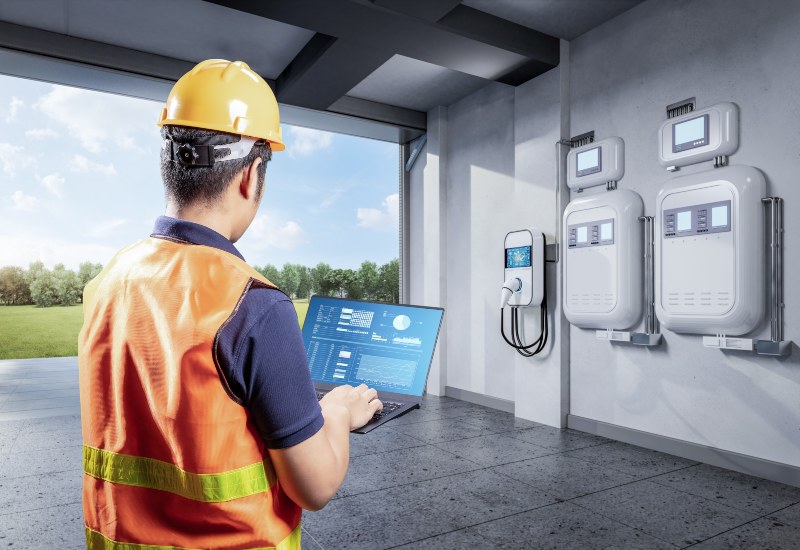Things To Consider Before Installing an EV Charger
What You Need to Know for a Home EV Charger Installation
Consumer demand for electric vehicles (EVs) continues to skyrocket. More and more families in the U.S. are choosing the sustainability and lower operating costs they offer. With EV ownership comes the convenience of a home EV charger installation. They allow users to recharge efficiently and avoid depending on public charging stations. Trust Dalcon Electric in San Jose, CA, to guide your home EV charger installation process in a safe, cost-effective manner.
Choosing the Right EV Charger for Your Home
Selecting the right EV charger is essential in preparing your home for electric vehicle charging. Home chargers are available in three main types, each offering specific benefits depending on your budget or needs, including:
- Level 1 Chargers: These connect to a standard 120-volt outlet and are great for light charging needs. They typically add about 3–5 miles of range per hour, making them best suited for overnight charging.
- Level 2 Chargers: These chargers require a 240-volt outlet and deliver 20–30 miles of range per hour. They are perfect for quick recharges and meet most homeowners’ needs.
- Level 3 Chargers: These DC chargers charge vehicles in minutes but are rarely used for home installations due to higher costs.

Assessing Your Home’s Electrical System
Before starting your EV charger installation, make sure your home’s electrical system is ready. An assessment ensures your setup can handle the extra power needs of an EV charger. Some important factors to review include:
- Your Electrical Panel Capacity: Confirm your panel can support an EV charger without overloading.
- Possible Upgrades Required: Some homes may need a panel upgrade to meet EV charger installation requirements.
- Professional Evaluation: Hire a licensed electrician to assess your system’s readiness. They’ll confirm if upgrades are needed and ensure a safe EV charging installation.
Permits and Requirements for EV Charger Installation
Installing an EV charger at home in San Jose, CA, requires following specific regulations. Proper planning ensures a smooth process, avoids delays, and guarantees compliance. Stay informed and prepared to streamline the installation. There are several key requirements homeowners need to consider, such as:
- Getting the Required Permits: Obtain permits to install the necessary wiring for your EV charger.
- Local Building Codes: Follow California building codes, especially for multifamily properties.
- Utility Guidelines: Meet local utility provider requirements for safe and efficient operation.
- Clearance: Check placement rules for garages, driveways, or other areas.
EV Charger Installation Costs in California
Planning your EV charging installation includes budgeting for several key expenses. The good news is California has rebates that many residents are eligible for, such as the Clean Cars 4 All program. Typical costs associated with home EV charger installation across California include:
- Charger Unit Costs: Level 1 chargers typically cost $300 to $600. Level 2 chargers, depending on the brand and features, generally cost between $600 and $1,200.
- Installation Labor: Installations typically cost between $300 and $1200. However, this can increase depending on your home’s electrical setup and other complexities.
- Permits and Fees: Fees range from $100 to $300, depending on local requirements.
- Electrical Upgrades: Panel upgrades or rewiring, often required in older homes, may add $1,000 to $3,000 to your project.
Essential EV Charger Installation Requirements
Proper EV charger installation ensures safety and efficiency for your home setup. Following key guidelines helps create a reliable and durable charging system. Be sure to keep these considerations in mind:
- Your Designated Outlet Location: Install near your parking spot for convenient access and minimal cord usage.
- Proper Grounding Guidance: Ensure your electrical system is grounded to prevent safety hazards.
- Height and Mounting: Follow guidelines for wall or pedestal installations to ensure accessibility and security.
- Code Compliance: Your installation must meet National Electric Code (NEC) requirements for a safe, legal installation.
Choosing the Right Location for Installation
Picking the best location for your EV charger at home is key to convenience and efficiency. A professional electrician can help select a location that balances practicality and safety. They will guide you on factors such as:
- Proximity to Your Vehicle: Aim to place the charger close to your parking spot for a seamless connection.
- Weather Exposure: Position the charger in a sheltered area to protect it from rain or extreme heat.
- Space Efficiency: Choose a spot that won’t obstruct your garage or driveway.
Why Hiring a Qualified Electrician Matters
The success of your EV charging installation hinges on having a trusted electrician like Dalcon Electric handle the process. Professionals bring expertise to the table while ensuring compliance with local codes. Benefits of hiring a qualified EV charger installation electrician include:
- Accurate Assessments: Evaluating your home’s electrical system and determining necessary upgrades. Our team provides home safety inspections with every job for your peace of mind.
- A Safe Installation: Reduced fire risks, incorrect connections, or tripped circuits.
- Time-Saving Service: Proper setup is completed efficiently, with minimal disruptions.
- Warranty Protection: Ensuring your EV charger’s warranty remains intact through certified installation.
Contact Dalcon Electric for EV Charging Installation Today
Installing an EV charger at home is a wise investment for efficient, convenient car ownership. When it comes to EV charger installation in San Jose, CA, Dalcon Electric offers unmatched service. With over 30 years of experience serving our community and 24/7 support, we ensure high-quality installations you can rely on. Don’t wait to make the switch to streamlined charging at home. Schedule a consultation today to for your EV charger installation.